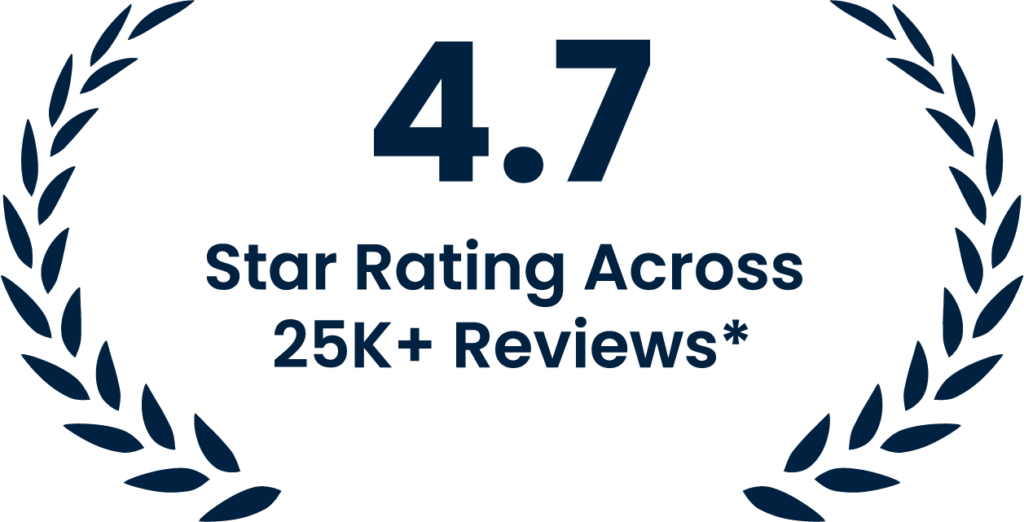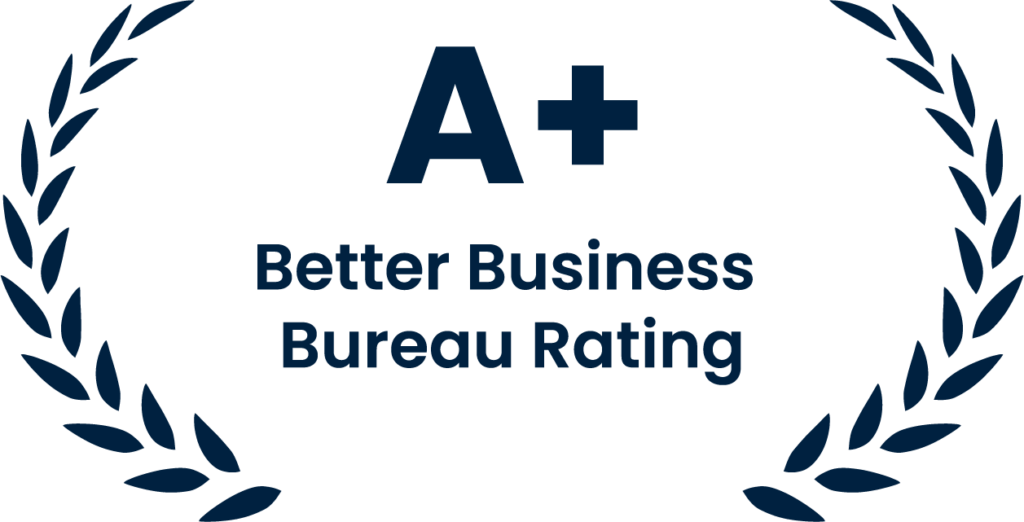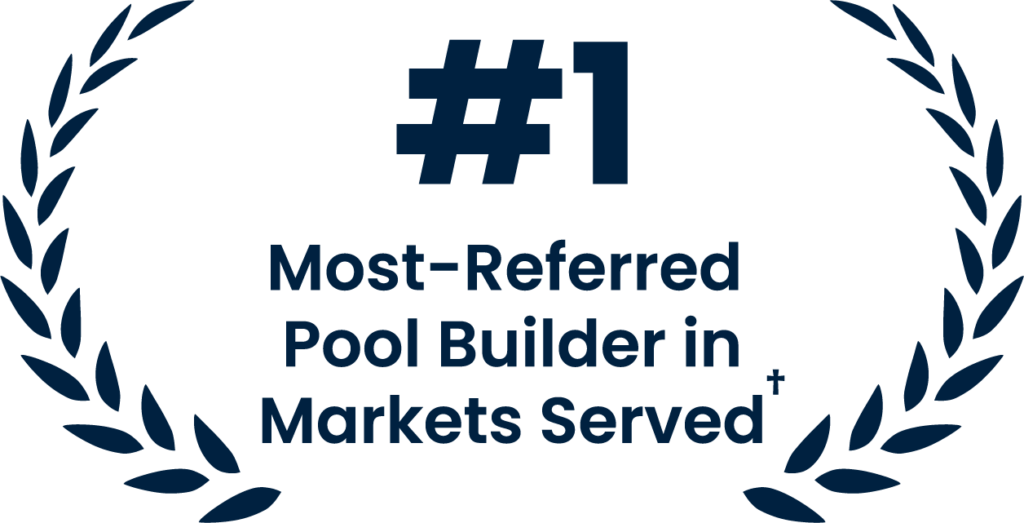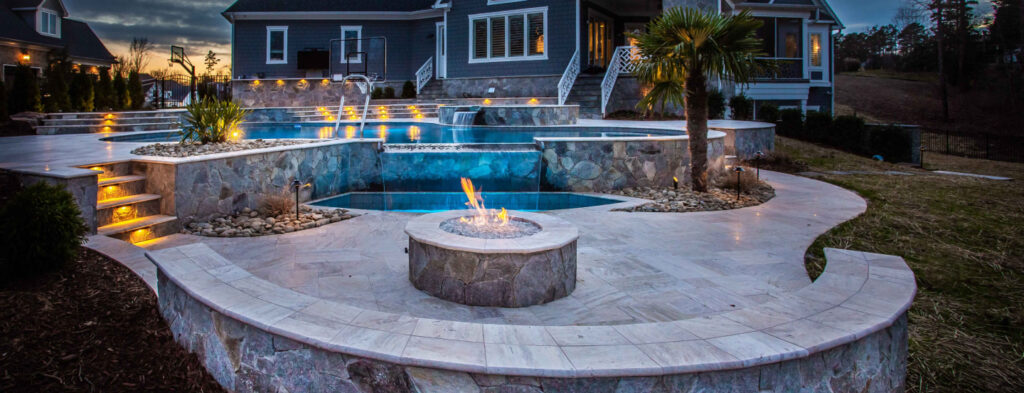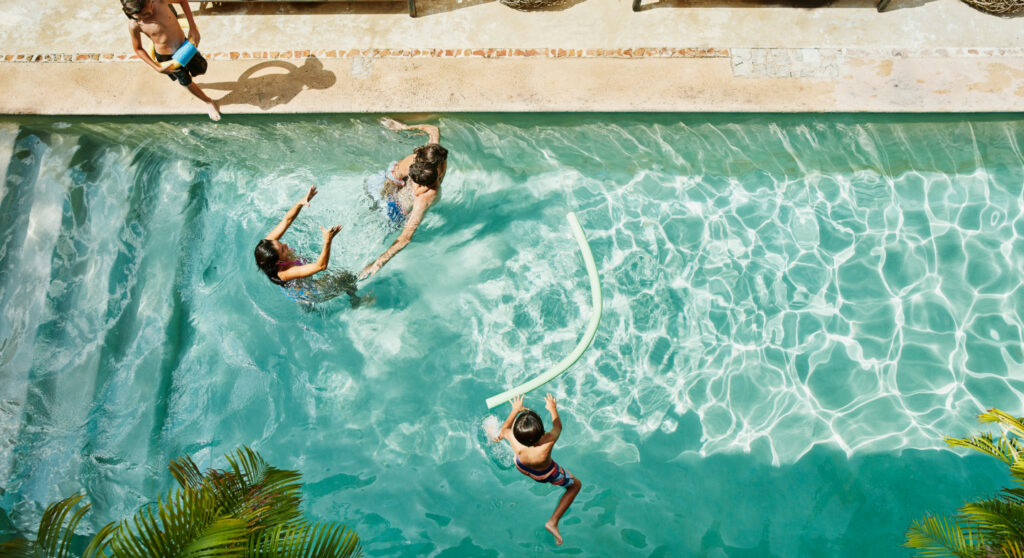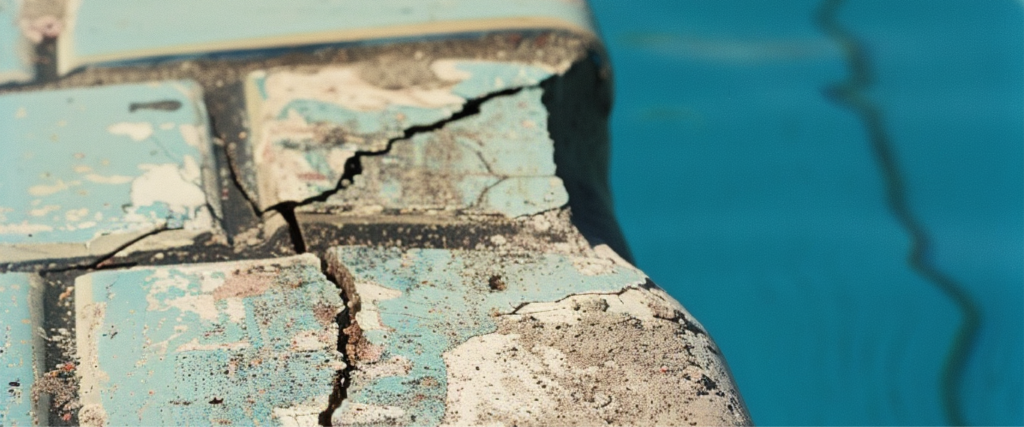To estimate the cost of an inground pool in Florida, you need to consider several key factors such as pool size, materials, design complexity, site conditions, and additional features that can all impact the final price.
1. Pool Material
Pool material is one of the most significant decisions that not only affects cost, but also how long your pool will last and the long-term maintenance requirements. Pools are typically made from your choice of three materials: concrete, fiberglass, or vinyl. Each material has its own pros and cons, which we’ll cover in detail below.
Concrete Pools
Known for their strength and versatility, concrete pools (also called gunite) offer homeowners the freedom to design virtually any shape or style they want. This flexibility makes them a top choice for those seeking a unique, durable pool tailored to their backyard. Constructed from a mixture of sand, cement, and water, concrete pools are built to last, often enduring 50-100 years or more with proper care. Anthony & Sylvan will even offer a Lifetime Warranty as a testament to their durability.
Concrete pools can be finished with a variety of materials, including plaster, tile, or pebble finishes, allowing you to balance beauty with practical benefits such as slip resistance. Maintenance does require periodic attention, including resurfacing roughly every decade to keep the pool looking and performing its best.
Fiberglass Pools
Fiberglass pools are manufactured off-site as a single, molded unit and then transported to be installed in your backyard. While installation times are comparable to concrete pools, fiberglass pools generally require less maintenance — no acid washing or resurfacing — just routine cleaning, vacuuming, and chemical balancing to maintain water quality. Fiberglass pools offer limited customization compared to concrete and typically have a lifespan of around 25 years. In terms of cost, they are usually priced similarly to concrete pools.
Vinyl Pools
Vinyl pools are typically the most budget-friendly option, constructed with a vinyl liner stretched over a frame made of plastic polymer or steel. However, their customization is limited by the size and shape of the vinyl liner, which restricts design flexibility compared to concrete pools. These pools generally have the shortest lifespan and lowest durability of all pool types, as the vinyl liner is prone to tears and punctures and usually needs to be replaced every 10 years. Additionally, vinyl pools may require more frequent repairs and upkeep to maintain the liner’s integrity, potentially leading to higher long-term maintenance costs.
2. Size of the Pool
The size of your pool is one of the most significant factors influencing the total cost, not just for construction, but for long-term maintenance as well. Larger pools require more materials, equipment, and labor to build, and they also demand more water, energy, and chemicals to maintain. Choosing the right size depends on your backyard space, how you plan to use the pool, and your overall budget for both installation and upkeep.
Small Pools
Small pools are typically around 10–15 feet wide and 20–25 feet long. Despite their compact size, they are not always more affordable than larger pools. The shape, materials, and add-ons you choose will increase the price of a pool.
Advantages of small pools:
- Easier and quicker to clean
- Lower ongoing costs for water, energy, and chemicals
- Fits well in compact yards or urban spaces
- Ideal for relaxation or light use without sacrificing luxury features
- Typically lower excavation costs
Medium Pools
Medium-sized pools generally measure 15–20 feet wide and 25–35 feet long , offering more space without the full cost burden of a large pool. They strike a good balance between initial investment and daily upkeep, making them a popular choice for families.
Advantages of medium pools:
- Versatile for both leisure and recreation
- Reasonable energy and maintenance demands
- Fits well in a variety of yard sizes and shapes
- Allows room for integrated spas, steps, or shallow lounging areas
Large Pools
Large pools typically range from 20–25 feet wide and 35–40 feet long or more. While visually impressive and highly functional, they are more expensive to maintain. They use significantly more water, require larger equipment, and need more time and effort to clean and service.
Advantages of large pools:
- Ideal for swimming laps, pool parties, or entertaining large groups
- Allows for multi-zone layouts, such as a deep end, spa area, and beach entry
- Supports premium upgrades like swim-up bars and jump boards
3. Site Preparation
Site preparation plays an important role in the overall cost of building an inground pool in Jacksonville, FL. The area’s sandy soil offers good natural drainage, which is a plus for pool construction. However, some neighborhoods may have high water tables or uneven terrain that require extra planning or equipment during excavation. These conditions aren’t uncommon in Florida, and experienced builders are well-equipped to handle them. If your property has mature trees, existing structures, or sloped areas, some additional prep may be needed — but with the right team, these factors can be managed efficiently to ensure a strong foundation and a smooth construction process.
4. Pool Add-ons and Features
When building a new pool, the add-ons you choose will increase the price. In Jacksonville, Florida, the most common pool features include:
Additionally, your pool build may include more complex elements like a sunken bar in your pool or a fire pit and kitchen in the side areas of your yard. It’s also a good idea to look into safety features like a pool cover and motion sensors around the barrier.
5. Permits and Regulations
Building a pool in Jacksonville requires obtaining the necessary permits and complying with local regulations, including adherence to the Florida Building Code and completing required inspections. Safety features such as barriers, alarms, and covers are mandatory to help ensure pool safety. Permit costs and specific regulations can vary by city, so it’s important to consult with your local pool professionals for accurate information. When you choose Anthony & Sylvan, we manage the entire permit process and ensure your pool fully complies with all Jacksonville regulations, making the process hassle-free for you.




